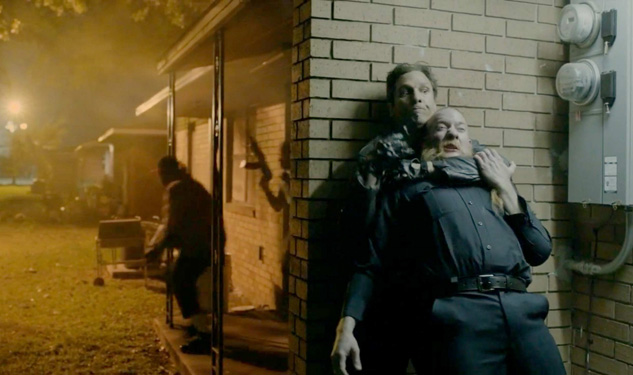
- Industry
The Dark Days of the Golden Age of TV
It has become a Hollywood truism that we are living in a much-lauded “Golden Era” of television. There is ample evidence that premium cable and now streaming services like Netflix and Amazon have made television the domain of engaging, authorial fiction that used to be the purview of adult drama in film. Much of that programming is fueled by compelling yet dark, sometimes grisly, material. Some say this phenomenon began with Breaking Bad, though arguably, The Sopranos reinvented the crime drama genre in 1999 with its own unique sensibility for the morbid and the macabre. Ever since, viewers have been regularly challenged by an aesthetic which includes the graphic, sometimes sadistic, violence and explicit sexual content which is part and parcel of cable staples like Game of Thrones, True Blood, The Walking Dead, American Horror Story, Boardwalk Empire, and even some network shows like Under the Dome. The next generation includes newbies like The Knick, Intruders, The Leftovers, Rectify, and True Detective, which have already brought us a new level of grim storylines.
To some degree observers have ascribed this trend to the progressive extinction of adult drama from movie screens, more and more the exclusive domain of action-fantasy tent poles aimed at juvenile audiences. Cable, VOD and to some extent even network TV have stepped up to fill that vacuum. In addition, in a post-9/11 world with terrorism here to stay, escalating wars and debilitating financial crises, tragic and grim stories seem to resonate with the collective psyche – and network execs have clearly picked up on that trend toward the darker sides of our nature. Bryan Cranston, who played Breaking Bad’s infamous Walter White, the school teacher-turned-crystal meth drug lord, considers, “It’s escapism. And we’re watching the human experience which is not just made up of only successes but the darker depths, too, like greed, avarice and all the ugly things as people we don’t want to experience in real life. And watching the show, people had that internal struggle. They’d say, ‘I’m rooting for this guy to be a drug dealer and kill people.’ We live vicariously through these characters because everybody is susceptible to temptation. We are all potentially bad-breakers.”
Be that as it may, the anti-hero reigns supreme on the platform of pay TV rather than taking a risk in big budget films. Golden Globe Award-winning writer Alan Ball, creator of Six Feet Under and True Blood, says, “Heroes are much better-suited for movies. I’m interested in real people. And real people are f***d up.”
Everyone wants to join the party it seems. The plethora of movie stars unafraid, even clamoring to play unlikeable and morally bereft characters includes Matthew McConaughey (True Detective), Kevin Spacey (House of Cards) Clive Owen (The Knick), and Billy Bob Thornton (Fargo). Not long ago, film actors were notoriously snooty about “doing TV”. McConaughey, nominated for an Emmy for Best Actor for his portrayal as True Detective’s Rust Cohle, says, “TV is obviously not the same thing as it used to be. And reading the script, Rust got his fangs into me. I had to play him. I didn’t care if you didn’t sympathize with him or whether you liked him.”
In The Knick, Clive Owen is a cocaine-addicted surgeon in the 1900s. The series is produced and directed by Golden Globe-nominated director Steven Soderbergh and takes the depiction of a primitive hospital operating theatre to gruesome new levels. “We like to watch but not actually be there ourselves,” notes Owen.
Justin Theroux stars in The Leftovers, set in a dystopian world when two percent of the population has mysteriously disappeared. “I heard someone call our show ‘sorrow porn.’ I think that there’s so much grief in the world that is true horror that watching these programs is a weirdly safe place to put grief so if you want to go and see some other people experience it, there will be a catharsis for anyone watching it.”
Although reprehensible behavior isn’t always praised, Cranston says of Breaking Bad, “There has been criticism but it’s not like the audience was ever screaming, ‘How dare you glorify drug dealing and murder!’ That never happened.”
With the upcoming fifth season of Game of Thrones, a program where graphic nudity and brutal violence (sometimes simultaneous) barely raise an eyebrow, we have clearly come a long way since Janet Jackson’s infamous ‘nipplegate’ incident which caused so much hand-wringing about TV and indecency. It seems we do not plan to return to our more prudish incarnations any time soon.
Michelle Manelis

